ala breve







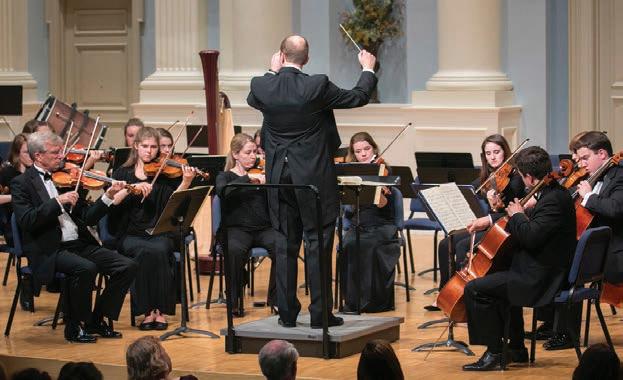
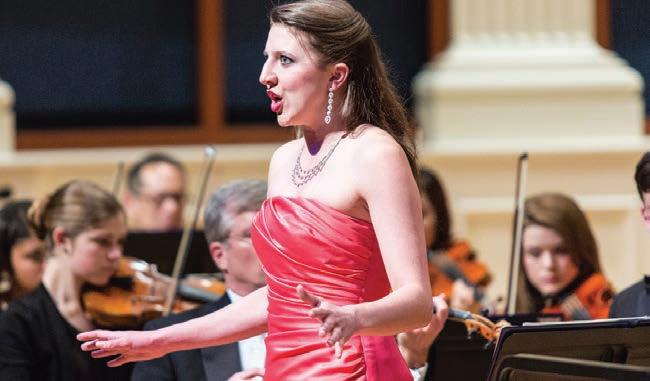

Music (B.M.)
Composition


Music and Worship
Performance
Instrumental, Organ, Piano, Piano with Pedagogy, Voice Music Education (B.M.E.)




Instrumental, Vocal/Choral Music, Liberal Arts (B.A. or B.S., premedicine)





Music
Worship Leadership
GRADUATE DEGREES
Music (M.M.)
Church Music, Vocal Performance, Piano Performance and Pedagogy Music Education (M.M.E.)

Traditional, National Board Cohort, Fifth-year, non-traditional
is preparing musicians to enrich society through a diligent pursuit of excellence.

Available
JUNE 19–30, 2017
Registration opens
Jan. 15, 2017 at eve.samford.edu
For more information contact Susanne Burgess at sburges1@samford.edu
Samford University is Alabama’s top-ranked private university with nationally ranked academic programs rooted in the university’s Christian mission. Located in suburban Birmingham, Samford was founded in 1841, and enrolls more than 5,400 students representing 47 states and 29 countries. Samford o ers 30 undergraduate and graduate degree programs through 10 academic units: arts, arts and sciences, business, divinity, education, health professions, law, nursing, pharmacy and public health.


















































 Susan Smith, AMEAPresident
Susan Smith, AMEAPresident

Lives of great men all remind us, we can make our lives sublime, and, departing, leave behind us, footprints on the sands of time.
Henry Wadsworth LongfellowWhen discussing leadership with my students - I always try to impress on them that there are multiple ways to lead. Some emerge as outgoing, first-to-the-top type of leaders and others lead through quiet example. While some leaders do what others can’t or won’t and others lead by going to work everyday making things better for all. Lacey Powell was a servant leader for our state in multiple facets.
Dr. Powell was the first band director at the University of South Alabama and served as President of Alabama Music Educators Association. He was the President of Phi Beta Mu and served as the state chairman of College Band Directors National Association as well as the American School Band Directors Association. He served as the
Executive Director of AMEA and during his career as Director of Bands at Georgiana High School, Andalusia High School and Davidson High School, his bands were awarded only superior ratings.
The Alabama Music Educators Association named him Outstanding Music Educator and awarded him the AMEA Barbara Odom Leadership Service Award. He was inducted in the Alabama Bandmasters Hall of Fame and the Alabama Music Educators Association Hall of Fame. We have recently renamed an annual award in his honor, the Lacey Powell Outstanding Music Educator Award, highlighting the best of our teachers in music education.
After I was elected President of the AMEA, the first congratulatory letter came from Lacey Powell. His kind words were so genuine and heartfelt. He was never too busy to make others feel good and was always interested in bettering himself and those around him.
After his passing his students said about Dr. Powell;
“Mr. Powell was one of the most important teachers in my life. He made an impression on me to always keep trying, and endure to meet goal. He taught honor. “
“The best band director ever.”
“I was extremely privileged to have known Lacey through his and my love of music.What a joy to have worked under his tutelage while a member of the Marching 200 band.”
“I can still remember so very well as a Freshman when Dr Powell ran over to me while in the 1st halftime DHS marching band practice exchanging my 3rd Trumpet music for 1st Trumpet saying, “You’re a 1st Trumpet player now”.”
As we make our way each day the best we know how, we hope to leave some legacy or have made some meaningful impact on our students and our profession. Lacey Powell did just that. While we will all miss his smile and giving heart, Lacey’s leadership will forever impact and guide music education for our state.
• Recommend your students in grades 9, 10, or 11 during the 2016-2017 school year to apply
• The All-National Honor Ensembles represent the top performing high school musicians in each state across the country
• So much more than a musical ensemble, it is a comprehensive, musical, and educational experience
• Students will learn under the baton of leading conductors who are sure to inspire

• This year’s event will feature one of the nation’s only college music showcases
2017

President Susan Smith Saint James School 6010 Vaughn Road Montgomery, AL 36116 president@myamea.org



Immediate Past President
Carl Hancock University of Alabama Box 870366 Tuscaloosa, AL 35487 (205) 3486335 past_president@myamea.org

President, AOA
Samuel Nordlund 405 Buchanan Hall Samford University 800 Lakeshore Dr. Birmingham, AL 35229 snordlun@samford.edu

President, AMEACollegiate
Joshua Meyer
UniversityofAlabama (256) 5661265 jpmeyer@crimson.ua.edu
IndustryRepresentative
BeckyLightfoot
ArtsMusicShop
3030 EastBlvd.
Montgomery, AL36116 334/2712787
beckyl@artsmusicshop.com
ExecutiveDirector
Editor, AlaBreve
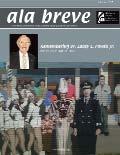
GarryTaylor 1600 ManorDr. NE Cullman, AL35055 (256) 6362754 amea@bellsouth.net
GarryTaylor, Editor& AdvertisingManager 1600 ManorDr. NE Cullman, AL35055 (256) 636-2754





amea@bellsouth.net
PresidentElect
Greg Gumina Shades Valley High School 6100 Old Leeds Road Irondale, AL 35210 (205) 9564638 president_elect@myamea.org






RecordingSecretary
CarlaGallahan
212 SmithHall
TroyUniversity Troy, AL36082 (334) 6703502 recording_secretary@myamea.org
President, AVA
Ginny Coleman
Tuscaloosa County High School
12500 Wildcat Drive Northport, AL 35475 (205) 342 2670 gcoleman@tcss.net
AMEACollegiateAdvisor
TedHoffman
UnivesityofMontevallo Station6670
DavisMusicBuilding308 Montevallo, AL35115 (205) 6656668 ehoffman@montevallo.edu
Assistant ExecutiveDirector
Rusty Logan
2020 Janabrooke Lane Auburn, AL 36830 (334) 6631702 rlogan9853@gmail.com
ADVERTISING& COPYDEADLINES
Fall- August/September(BacktoSchool) issue: July15
Winter- October/November(Conference) issue: September15
Spring- February/March(All-State) issue: January15
Summer- May/June(DigitalOnly) issue: April15
Treasurer/Registrar
PatStegall AMEARegistration
POBox3385
MuscleShoals, AL35661 treasurer_registrar@myamea.org
President, ABA
MichealHolmes
MountainBrookJuniorHighSchool 205 OverbrookRd. Birmingham, AL35213 (205) 8713516 x8525 thetubaman@charter.net
President, Elem/Gen CliffHuckabee
TheMontgomeryAcademy
LowerSchoolCampus
1550 PerryHillRoad
Montgomery, AL36106 3344623790 cliffhuckabee@gmail.com
President, HigherEducation
Becky Halliday
University of Montevallo
Department of Music Davis 317
Montevallo, AL 35115 (205) 6656666 AHalliday@montevallo.edu
Alabama Department of Education Arts Education Specialist
Andy Meadows 50 North Ripley Street
Montgomery, Alabama 36104 (334) 3531191
ameadows@ALSDE.edu
Unless otherwise indicated, permission is granted to NAfME members to reprint articles for educational purposes. Opinions expressed in this publication are not necessarily those of AMEA or the Editor. All announcements & submissions are subject to editorial judgement/revision.The Alabama Music Educators Association is a state unit of NAfME: The National Association for Music Education, a voluntary, nonprofit organization representing all phases of music education in schools, colleges, universities, and teacher-education institutions. Active NAfME/AMEA membership is open to all persons engaged in music teaching or other music education work.
This year, one goal of the HED has been to foster robust and productive relationships between Alabama’s colleges and universities. These connections can create opportunities for music departments to support each other’s endeavors outside of our annual conference. With this in mind, I would like to use this column to highlight summer events that are offered across the state. These workshops, clinics, and camps show a deep commitment to fostering musical growth and best teaching practices. Below is a list of such events, with dates and contact information.
Alabama State University
l Middle School Music Skills Camp, June 26-29 Dr. Katrina Phillips, krphillips@alasu.edu, www.alasu.edu/msmc
Auburn University
l Percussion and Auxiliary Camps - June 8-10
l High School Symphonic Band Camp - June 10-13
l Marching Leadership Camp - June 19-22
l Middle School Symphonic Band Camp - June 23-25
Joshua Wine, AUSummerBandCamps@gmail.com, http://www.auburn.edu/student_info/auband/event/summer_c amps/index.htm
Huntingdon College
l Spirit Camp, June 13-17
Eddy Williams, ewilliams@hawks.huntingdon.edu, www.spiritcamp.com
Samford University
l Orff Schulwerk certification levels, June 19-30 Susanne Burgess, sburges1@samford.edu

University of Alabama
University of Alabama Crimson Leadership Institute
l Band Booster Institute, June 11
l Crimson Student Leadership Camp, June 12-13
l Crimson Music Camp - Concert Band (Middle School and High School), Colorguard and Majorettes. June 14-17
Randall Coleman, rocoleman@ua.edu
University of Alabama Community Music School
l Adult Strings Weekend, ages 20 +, August 25-27
l Private Lessons, variable day/times: June & July
l Summer String Camp (middle/high school): June 19- 23, 2017
l Children’s Musical Camp: July 17 – 28, 2017
l Adult Strings Class, Tuesdays, May 30 – June 27
l Kindermusik Classes, variable times: May 30- June 27 Dr. Jane Weigel,jweigel@music.ua.edu; Dr. Anne Witt, acwitt@ua.edu, www.cms.music.ua.edu
University of Montevallo:
l Young Musicians’ Camp, June 18-23
Ted Hoffman, ehoffman@montevallo.edu
l Kodály Certification Program, July 10 – 21
Becky Halliday, ahalliday@montevallo.edu
University of Montevallo Community School of Music
l Private instrumental and vocal lessons
Pamela Smith, umcsm@montevallo.edu
University of North Alabama:
l Sounds of Summer Percussion Camp, June 8-9 Tracy Wigginstwiggins@una.edu
l Edsel Holden presents “What a Wonderful World,” June 11, 2 p.m.
l Marching Band Leadership Symposium, June 18-19 Lloyd Joneslejones@una.edu
University of South Alabama:
An educational festival for elementary, middle, and high school students in band, choir, and orchestra
2017 dates:
April 21-22, April 28-29, May 5-6
2018 dates:
April 20-21, April 27-28, May 4-5
www.SMMFestival.com or call:1-855-766-3008
l Arts in Education professional development: Grades K-3: June 12-15, Sept. 9, Oct. 28; Grades 4-6: June 26-29, Oct. 14, Nov. 11
Jeannette Fresne, jfresne@southalabama.edu
Another goal of the HED has been to support our Collegiate Division, as we have many mutual interests. The Collegiate Summit that is held each fall offers a good opportunity for faculty and students to interact, so please mark your calendar when that date is set. The upcoming statewide implementation of edTPA may pose a challenge for faculty and students alike, and a strong relationship across our divisions should prove valuable as we navigate this new program.
I look forward to seeing you all in Birmingham for the 2018 conference. Remember that the submission deadline for session proposals is June 1. Please feel free to contact me if you have any questions, suggestions, or comments. Thank you for all that you do for music education in Alabama, and have a wonderful summer!
honorary bandmasters fraternity. In addition, he was state chairman of the College Band Directors Association and the American School Band Directors Association. Lacey also served as a member of the Alabama Alliance for Arts Education Board and was named Director Emeritus.


Dr. Powell has been honored with induction in the Alabama Bandmasters Hall of Fame (1995), Troy State University Distinguished Alumnus of the Year (1993), Troy State University Outstanding Music Educator (1992), AMEA Outstanding Music Educator (1993), Outstanding Educator of America (1971), and AMEA Hall of Fame (2008). Dr. Powell, a former chairman of the editorial board of Ala Breve, the official publication of the Alabama Music Educators Association, has published articles in the Ala Breve, The Instrumentalist, Music Educators Journal, and School Musician-Director.
was a member of the 43rd Division Army Band during the Korean Conflict, played with the Mobile Symphony for seven seasons, and was a charter member of the Mobile Symphonic Pops Band. He served on the board of directors for the Symphony Concerts of Mobile. During his career at Georgiana High School, Andalusia High School, and Davidson High School, his bands were awarded only superior ratings at state contests.
Dr. Lacey E. Powell Jr. served as Professor of Music at the University of South Alabama and was the former Executive Director for the Alabama Music Educators Association. He served as president of the Alabama Music Educators Association for two terms, the Alabama Bandmasters Association, and the Rho chapter of the Phi Beta Mu, national
Dr. Powell received his bachelor’s degree from Troy State University, master’s from VanderCook College of Music, and a Ph.D. from the University of Alabama, with additional study at Northwestern University. He was an active clinician and conducted allstate and regional honor bands in numerous states and has appeared as an adjudicator, consultant, clinician, and speaker. Dr. Powell
Lacey was the first director of bands at the University of South Alabama. Prior to joining the University faculty in 1965, he was the supervisor of music for the Mobile County Public Schools. As part of the Alabama Bicentennial Celebration, Dr. Powell was director of the “Marching 200,” the official Alabama bicentennial marching band, which performed on three national telecasts. Dr. Powell was a member of the Music Educators National Conference, later known as the National Association for Music Education, the Alabama Music Educators Association, Alabama Bandmasters Association, National Band Association, Alabama Alliance for Arts Education, Phi Beta Mu, and Phi Mu Alpha.
In January 2016, the Alabama Music Educators Association renamed the Outstanding Music Educator Award to the Lacey Powell Outstanding Music Educator Award in his honor. The award is presented annually to honor those music educators who have set high standards for our profession, and who give all of us inspiration and direction.
A great servant of music education, Dr. Lacey E. Powell Jr. left behind a legacy for all Alabama music educators.
Carl Hancock AMEA President, 2014-2016
As we make our way each day the best we know how, we hope to leave some legacy or have made some meaningful impact on our students and our profession. Lacey Powell did just that. While we will all miss his smile and giving heart, Lacey’s leadership will forever impact and guide music education for our state.
Susan Smith, AMEA President
I’ll always remember Lacey in two ways; he was a true professional and he was a real gentleman! I miss him!
Johnnie Vinson, AMEA President - 1996-1998 and a student of Dr. Powell’s at Andalusia High School
Lacey Powell was always the consummate professional with a kind heart and a gentle soul. He was always willing to help guide young music educators to become the best they could be.
Rebecca Rodgers Warren, AMEA President - 2004-2006
Lacey Powell was a mentor, friend and shining example of a true gentleman, music educator, and leader. Steve McLendon, AMEA President - 2010-2012
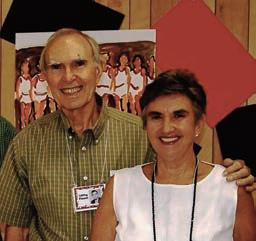
Outstanding music educator, mentor, friend, ultimate Southern Gentleman... These are some of the characteristics I always use when describing Dr. Lacey Powell, Jr. I actually do not recall the first time I met Lacey Powell, he was just always that positive presence in the AMEA organization for whom I had tremendous respect. But in 1992, as I embarked on the role of AMEA President, Lacey Powell became the first Executive Director of AMEA. From that moment a strong professional bond was formed that continued through the years. His intelligence, organization, kindness and support were unmatched as he guided me through the responsibilities of serving our association. Lacey was a true friend and mentor and I am eternally grateful for the influence he had on my professional upbringing. He was one of the good ones and I miss him dearly.
Dianne Johnson, AMEA President - 1992-1994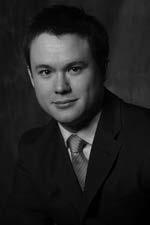
Admit it, teachers are just as excited about summer as students. The end of Spring is a time to reflect on the year, and plan some much deserved rest and relaxation for the summer. Reflecting back on the 2016-2017 academic year, the AOA has much to be proud of. Terrific sessions at the state convention in January were followed by a tremendous All-State Orchestra Festival. I may be biased, but it seems to me that the level of all three orchestra improves every year. And all the students had a blast, whether they were orchestra regulars or first-timers. Finally, thirteen string and orchestra groups from across the state performed at MPAs at Auburn University and UNA. For our second annual MPA, we were very pleased with turnout and performances. Congratulations to the Auburn Youth Orchestra Sinfonia for straight superiors, and all the other
1946YaleH. Ellis
performing groups for their hard work and terrific improvement!
Besides the rest that we all deserve, the AOA is actively planning for the future. The 2017-18 academic year will be another exciting time for orchestras in Alabama. We hope to expand our presence at the AMEA Convention in Birmingham, specifically by adding chamber music sessions and masterclasses, and recruiting string vendors to offer products and services that are more suited to string and orchestra teachers and performers.
The 2018 All-State Orchestra Festival, February 8-11 at UA, will be another highlight of the year. I think the most inspiring storyline will be the return of Norman Huynh to lead the festival orchestra. Norman received his BM in euphonium at the University of Alabama, studying with Demondrae Thurman in the early and mid-2000s. Since then, he has
received his MM in conducting at the Peabody Conservatory of Music, and has been conducting and guest conducting around the world ever since, to great acclaim. His most recent appointment has been Music Director of the Portland (OR) Symphony Orchestra, an orchestra with an annual budget of $15 million. Although I have never met Norman, I am beyond excited for his “homecoming,” and the energy that this young but experienced musician will bring to our orchestra students. I also hope it especially motivates many of our wind and brass students to not only audition for All-State Orchestra, but to realize the performing, conducting, and teaching opportunities that are possible through orchestra.
If you do not know of a school or youth orchestra in your community, please contact the AOA to let us help you find one, or plant the seeds for creating one. Band teachers, encourage your students to attend summer festivals such as FSU, Sewanee, Brevard, Eastern, Interlochen and more, to experience high level orchestra, band, and chamber music. You will help open doors for their future success in any musical field. Happy summer!
1972FrancesP. Moss
1996JohnnieVinson
1948WalterA. Mason
1950VernonSkoog
1952JohnJ. Hoover
1954LamarTriplett
1956CarletonK. Butler
1958MortGlosser
1960WilburHinton
1962LaceyPowell, Jr.
1964G. TrumanWelch
1966JerryCountryman
1968FloydC. McClure
1970JerryBobo
1974GeorgeHammett
1975FrancesP. Moss
1976S. J. Allen
1978W. FrankMcArthur, Jr.
1980PaulHall
1982LaceyPowell, Jr.
1984JohnnyJacobs
1986MerilynJones
1988RonaldD. Hooten
1990KenWilliams
1992DianneJohnson
1994JamesK. Simpson
1998MichaelMeeks
2000JohnMcAphee, Jr.
2002TonyPike
2004BeckyRodgers
2006JohnBaker
2008PatStegall
2010SteveMcLendon
2012SaraWomack
2014 CarlHancock
2016Susan Smith
At Yamaha, we believe that the first instrument in one's musical journey must provide excellent quality and tuning consistency. With that in mind, the new YX-230 xylophone is designed for the beginning percussion student. Featuring professionally tuned Padauk wood bars, this instrument produces a beautiful Yamaha sound that has been familiar to music educators for over 30 years. Weighting only 22 lbs. and just over 45" in length, this xylophone offers a 3 octave range (C52-C88) with 1-1/2" wide bars. A pair of ME-103 mallets are included along with a cover to protect the instrument from dust and scratches. An optional stand (YGS-70) and soft case (PCS-YX230) are sold separately.
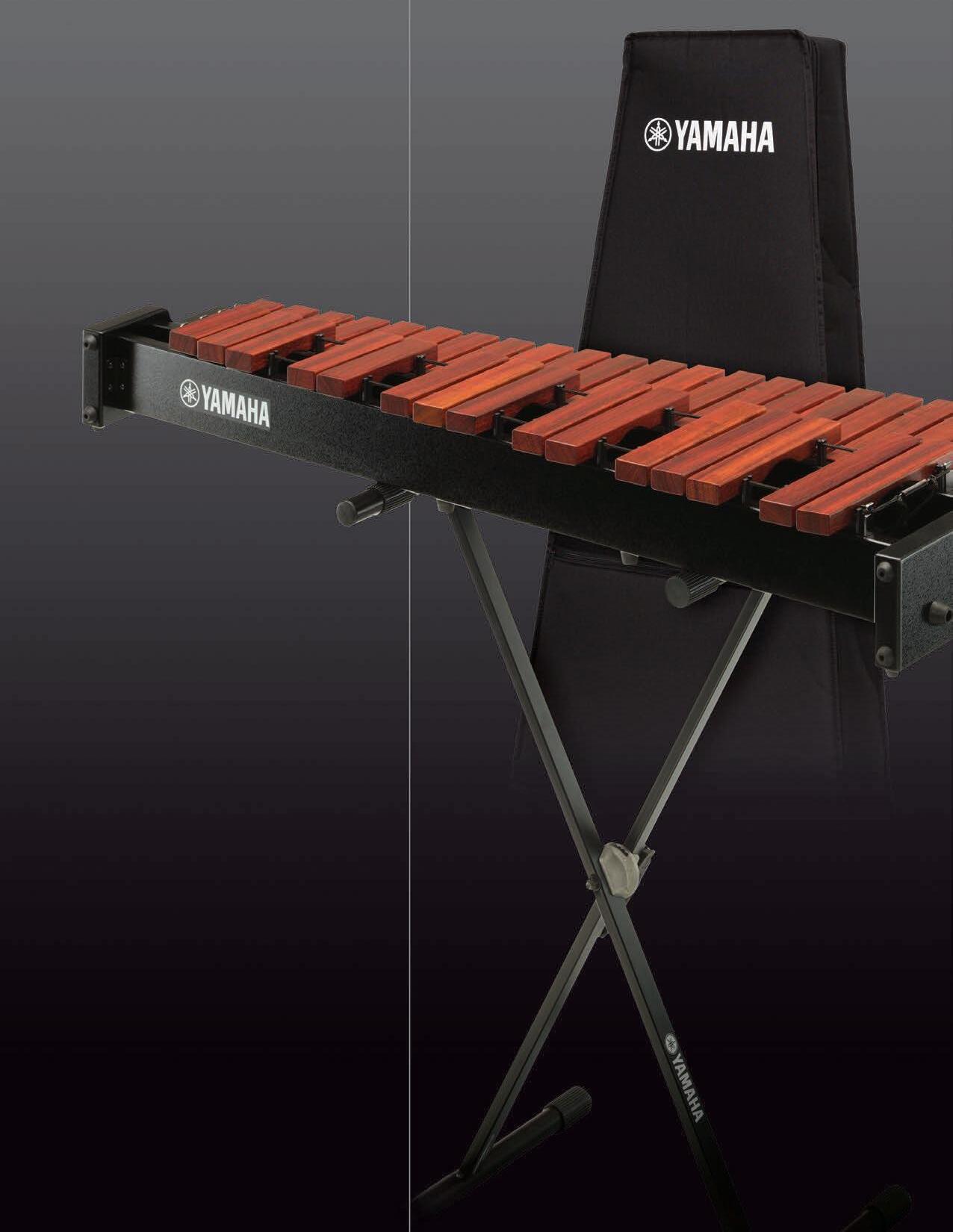
Each Member of the Jaguar Marching Band receives a scholarship





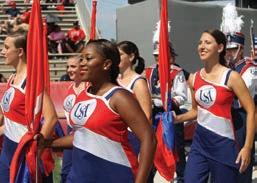

Full-Band travel opportunities to away games and exhibitions






















































Matching university-provided wind instruments
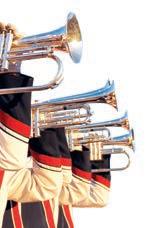





































One Pre-Game Show and Three Half-Time Themes each season





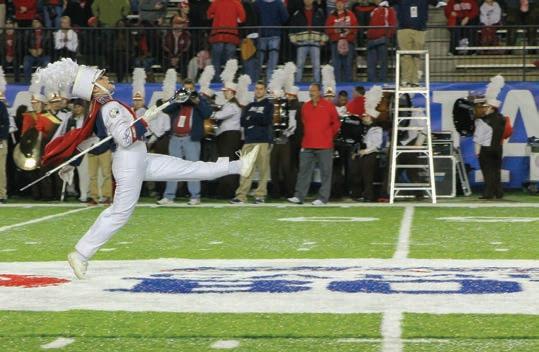
Fastest growing university in the state and region No fees and No fundraising











For more Information about AUDITION DATES visit www.jaguarmarchingband.org or call 251-460-6136 www.jaguarmarchingband.org facebook.com/jaguarmarchingband twitter.com/usajmb

January 18-20
Submit a session proposal or performance application for the 2018 conference. Online applications are available on the conference page of the AMEA website (http://www.myamea.org/2018-ameaprofessional-development-conference/).
Hurry, the deadline is June 1.
Visit the hotel information page of AMEA’s website to reserve a room at the Sheraton Birmingham Hotel (http://www.myamea.org/amea-conference/2018-hotel-information/). The room block is open now.
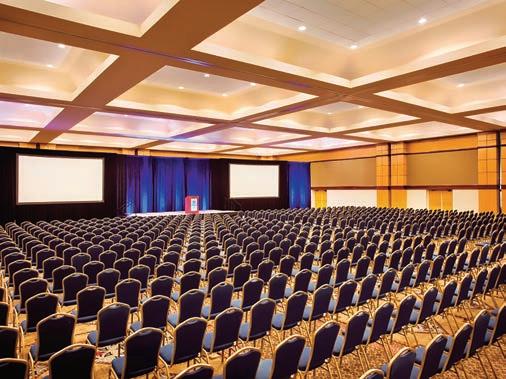

Conference registration will open August 1.



W e began with a “process” four years ago. An agenda was set with goals to be met and much work to be done. We went to work continuing what those had set in motion that came before us. Much has been accomplished and as we look forward there is still more to be done. I have learned to appreciate the efforts of those that cleared the path to get us to where we are today. One such individual, Dr. Lacey Powell, has served as a mentor, leader, and great friend. I have taught for thirty-six years, and Dr. Powell has always been a presence. Just two short years ago he was unable to attend our AMEA Conference. I was posting nightly summaries through our abafest email account of the ABA-related clinics and events of the conference. After the second day I received a very nice message from Lacey. He wanted to say thanks for the daily reports and that it had helped him feel as though he was still part of a conference that he very much wanted to attend. He never missed an opportunity to offer words of praise when you did well or words of encouragement when you needed to do better. Dr. Powell filled the bill as a featured speaker during the “Old Fogey” segment of our Summer Conference many years ago. At the end
of his presentation, we had all received a thorough lesson on the history of AMEA and ABA as well as much needed advice on how to be a better band director and person. Dr. Powell’s presence will be missed but the legacy he leaves behind is something for which we can all be grateful.
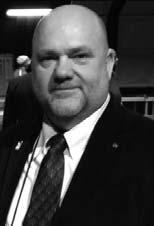
All-State Solo Festival (day one) was to be hosted by Mr. Eddy Williams and the Huntingdon College Music Department. But Mother Nature had other plans for our state at the time. I want to thank Eddy and Rusty Logan as they had everything ready to go. As you all know, severe weather reared its ugly head and created problems across the state. All we had to deal with was making a tough decision while others were dealing with damage to their homes, other property, concern for family and friends, and staying safe themselves. President-Elect Doug Farris, along with members of our board, began planning a make-up event, which was carried out regionally throughout the state. This was done to give those students that had worked so hard to prepare for this prestigious event an opportunity to perform, receive feedback, and still have the possibility of earning that coveted Superior Rating and
the medal that accompanies it. Mission accomplished!
All-State Band Festival 2017 (day two) was filled with “excitement” as well. On Thursday, the day All-State rehearsals began, Middle School Band Clinician Mr. James Swearingen was stranded at the airport in Ohio on standby for a flight to Atlanta and then to Montgomery. Red Band Clinician Dr. Rick Clary was on standby for a flight out of Atlanta to Montgomery, and White Band Clinician Mr. Alfred Watkins was parked in traffic somewhere near Atlanta. Blue Band Clinician Will Petersen, thankfully, was enjoying his time in Montgomery waiting for rehearsal to begin. A glimmer of hope came when Mr. Swearingen was put on a flight to Atlanta. The flight from Atlanta to Montgomery that was to transport Mr. Swearingen and Dr. Clary was cancelled. But we would not be foiled. Anticipating that this could happen, we dispatched a very willing Tim Hammond to drive to Atlanta to be on hand just in case the flight was cancelled. Yes, we are good! Tim retrieved Jim and Rick, and they eventually made it in time to get in about an hour’s rehearsal time with their respective bands on Thursday evening. Alfred made it to Montgomery about
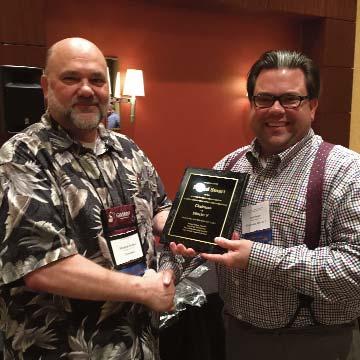
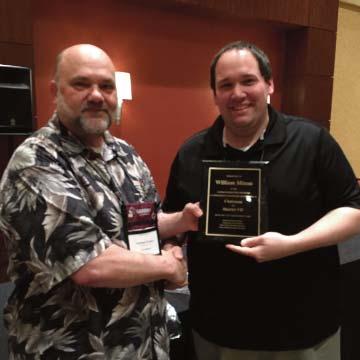
ABA President Mike Holmes congratulates outgoing District Chairs Marsha Asquith, District I, Nancy Frith, District III, Jed Smart, District V, and William Mixon, District VII.


thirty minutes prior to the beginning of his rehearsal. Thanks to Connie Hammond and David Raney for covering the Middle School and Red Band rehearsal until Jim and Rick arrived. We think Rick finally got his luggage today. That’s a story for another day. All the while, Will was enjoying a very relaxed beginning to his Blue Band rehearsal. So day two was just as fun as day one. In the end, it was a great All-State Festival with our amazing students under the direction of our outstanding panel of clinicians, presenting another All-State Concert that will long be remembered as being phenomenal. Congratulations to Dr. Mark Walker and the Troy University Symphony Band. We really appreciate all of the hard work you put into providing an outstanding Friday evening concert.
Thank you!! All-State Festival is a huge event for our organization. The District VI directors led by All-State site coordinator Gene Butler, provided us with a well-organized event, making the move to Montgomery a smooth transition.
If you enjoy hard work, you should volunteer to serve as “Band Host.” James Ed Champion, Damon McAllister, Heather Henson, and Connie Hammond (and Tim) did a masterful job of taking care of the needs of our students and clinicians. ABA Executive Officers Doug Farris, Terry Ownby, Rusty Courson, Mark Foster, Kim Bain, and Harry McAfee worked together, along with our District Chairs and Vice-Chairs, to see to it that our students could count on a positive All-State experience. I would also like to thank all of our directors that were present to judge chair auditions, work the tabulation room, and be on call if needed. All of the directors throughout our state are commended for the assistance provided to all of the students that auditioned.
The 650 students participating were only the tip of the iceberg compared to the hundreds more that auditioned at the District level. A special debt of gratitude
is owed to our graduating District Chairs – Marsha Asquith (I), Nancy Frith (III), Jed Smart (V), and William Mixon (VII). You are to be commended for the work you have done. It has been an honor to serve alongside you.
The End is in Sight Summer Conference 2017 is just around the corner and soon to be ABA President Doug Farris has a great conference planned for us. It has been a pleasure and an honor to serve these past four years on the AMEA Board, especially as President of the Alabama Bandmasters Association. During this time the board has been filled with dedicated, talented, and professional individuals. The ABA Board, consisting of your District officers, works diligently to see to it that you remain informed and that ABA District level activities are conducted in an efficient and professional manner. Our Jazz Education Division has grown and improved under the leadership of Dr. Mark Foster, and we expect that to continue with Kim Bain at the helm. Much has been accomplished and there is always more to do. Thank you to John Cooper, Rusty Courson, Harry McAfee, and all that have served on the ABA Board during my term as Vice-President
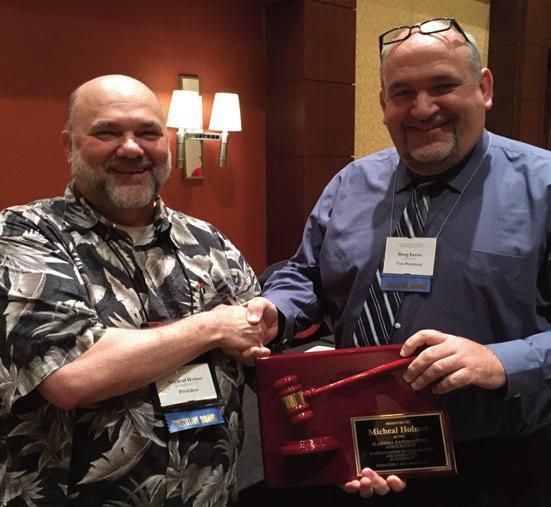
and President. I appreciate the patience, guidance, and understanding that you have provided to me. I will continue as Past-President for the next two years as a retired band director, and I am very comfortable handing the gavel to President-Elect Doug Farris. Doug has been outstanding in carrying out the duties of his office. We welcome Terry Ownby as ABA VicePresident/President-Elect and Joel Henson as Recording Secretary. We will also have the Vice-Chairs of the odd numbered districts move into the position of District Chair and newly elected ABA members filling the office of Vice-Chairs. Welcome aboard!
To all of our members, I say thank you as well. You are an inspiration to your students, their parents, and me. Continue to work hard and do what it takes to get the job done. However, remember to take care of yourself physically, financially, and emotionally. Occasionally you will need to rest, hydrate, get a check-up, go fishing, take a vacation, spend as much or more time with your family as you do with your band family and…DON’T

The ABA/Photography by Suzanne Scholarship is presented to Thomas Sluis of Trinity Presbyterian School by Chris Lindley

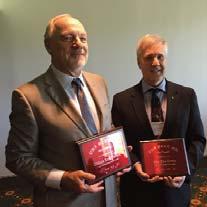

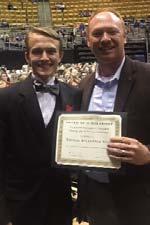
James Champion presents Taya Appleton of West Limestone HS the Phi Beta Mu Lamar Triplett Scholarship

PiccoloAudrey Zhao, Oak Mountain HS; FluteLucy Thom, Huntsville HS; OboeRebecca Keith, Thompson HS; BassoonAndrew Pahos, Vestavia Hills HS; Eb Clarinet Sierra Eastridge, Central HS; Bb ClarinetDalton Kulick, Hartselle HS; Alto Clarinet Charistopher Hamm, Mary G. Montgomery; Bass Clarinet Sarah Nguyen, Sparkman HS; Contrabass ClarinetDancy Castle, Sparkman HS; Alto SaxStephen Michaels, Vestavia Hills HS; Tenor SaxQuentin Moffet, Randolph School; Bari SaxGrey Vandeberg, Bob Jones HS; TrumpetSam Butler, Fairhope HS; French HornNathan Stephenson, Oak Mountain HS, TromboneAdam Thomas, Mountain Brook HS, BaritoneWyatt Detrick, Grissom HS; TubaHenry Sargent, Moody HS; String BassJamie Newsome, Davidson HS; Percussion John Paul Williams, Spanish Fort HS
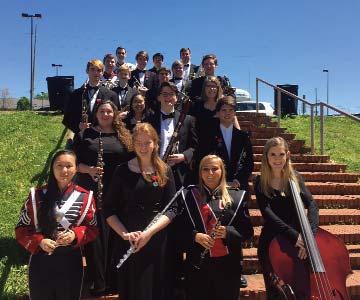

FluteCassidy Harris, North Jefferson MS; OboeEmily Zhang, Chelsea MS; BassoonHarry Tidwell, Simmons MS; Bb Clarinet Solomon Sigmon, Hampton Cove MS; Alto ClarinetAndrew Tillman, Trinity Christian; Bass ClarinetChloe Taylor, Luverne HS; Contrabass ClarinetJake French, HewittTrussville MS; Alto SaxLuke Aguayo, Whitesburg MS; Tenor SaxCarly Culpepper, Trinity Christian; Bari SaxEric Samelo, Baldwin Magnet; TrumpetNathan Landers, Auburn JHS; French HornDemi Adetona, Hampton Cove MS; TrombonePhenix Patton, Jemison HS; BaritioneMark Sayler, Fairhope, MS; TubaMichael Bagby, Pizitz MS; Percussion Phenix Bright, Westminster Christian



It was so nice to see many of your at the All-State festival in March. I appreciate all those who served as concert coordinator, choir coordinator, attendance monitor, or in any other capacity to be sure that everything ran smoothly. I think that the students enjoyed their interaction with the conductors of the various choirs. I was also pleased with the final performances. We appreciate Samford University for once again hosting All-State. Kenny Gannon, Brian Ernsberger and their staff were welcoming and helpful. We look forward to being back in 2018.
I hope that the recordings you received from SCPA were helpful to you this year. One of the reasons that we decided to record each choir is so that you would have a high-quality recording in the event you decided to submit to perform at AMEA. If you are considering this, please know that the deadline is June 1. You can find instructions on the AMEA website. In addition, please also consider submitting to present a session if you have something of value to share. We are always looking for new ideas!
The AVA Executive Board will meet for our summer board meeting at the beginning of June. If you have any ideas or suggestions that you would like the board to consider during our meeting time, please submit in writing before the end of May. We want to hear your ideas and suggestions for improvement.
Please go ahead and mark your calendars for our 2017 AVA Fall Workshop! As always, the workshop will be held on the Friday after Labor Day, which is September the 8th. We will meet in Montgomery again so that our colleagues in the north and south of the state can all save a hotel night if needed.
This year, we have made an effort to provide the AVA membership with increased instructions and reminders about registration deadlines, etc. We occasionally get questions about where to find information. You should expect all information for all AVA events to be available on our website. For example, if you are attending an SCPA in another district you should be able to get all information concerning the event you are attending from the AVA website. Let your district chairman know if you have difficulty accessing anything. The AVA Board is continually striving to 1) maintain adherence to our mission statement and 2) improve our functionality. Along those lines, we have begun discussion about the following:
l Streamlining the All-State audition process using available recording technology rather than sending 5 judges on a tour around the state
l Modifying the sight-reading portion of SCPA to allow directors to choose an appropriate sightreading example for their students based on students’ ability
l The future of All-State Show Choir and how it fits into the structure of AVA
We are interested in thoughtful, written feedback in the form of an email to me or anyone else on the AVA Board. Please let us know if you have anything you would like to add to the conversation. Your thoughts are welcome and appreciated. Thank you for taking the time to read about your professional association. Please send questions, suggestions, or ideas to me at presidentofava@gmail.com. I am looking forward to seeing you in September!
GinnyPlease let us know if you have anything you would like to add to the conversation. Your thoughts are welcome and appreciated.
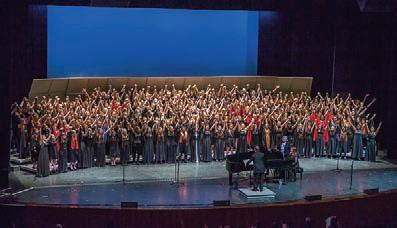






growth in our Elementary Music Festival, two great years of In-Service Conferences, and the addition of a Facebook page. We need to continue our growth to reach more elementary music educators who are not a part of AMEA and increase our performance applications for our Annual In-Service Conference.
workshop the following day with Ericka Bridge at a local elementary school. More details on the workshop to come.
Greetings Elementary Music Educators! I hope you all have had a great year! It has been a busy one for me, and I am looking forward to some rest and relaxation this summer!
This will be my last Ala Breve article as your President. My two-year term is coming to an end, and I will be stepping into the role of Past President for two years to help guide our new President, Phil Wilson, as he begins his two-year term. Phil brings a passion for elementary music education and proven leadership experience to the position, and I know you will support him as he begins his term.


It has been my pleasure to serve you as President the past two years, and we have seen many great things such as continued
We do have some exciting things coming up this next school year. First, the 3rd Annual East Alabama Music Workshop will be held in Auburn on August 26th from 9 AM till 1 PM. The guest speaker will be Dr. Becky Halliday from University of Montevallo and will focus on the new Alabama Course of Study for music. The workshop is free and more information can be obtained from Dr. Rob Lyda at lydarob@me.com
Second, our 11th Annual AMEA Elementary Music workshop will be held on Friday, October 6th at Samford University. Our clinicians will be Ericka Bridge and Vic Oakes. We have around 400 students from 40 schools committed to participate. We are excited to continue this wonderful event. We will also host a
Lastly, the AMEA Annual Professional Development Conference will be held in Birmingham at the BJCC on January 1820th 2018. This will be another great opportunity for professional growth and I encourage our elementary teachers to support this event. I also encourage you to submit session proposals to share your teaching ideas with other music educators. I also encourage you to submit performance applications especially our Birmingham area schools. Information on these opportunities are on the AMEA web site at www.myamea.org
I hope you will all support Phil and his Executive Board as they begin their new term of service this June. We look forward to serving you!
Respectfully Submitted,
Cliff Huckabee, President AMEA – Elementary Division












































AMEA would like to express appreciation to the following partners who have joined AMEA in our efforts to promote music education in Alabama. Please support these industry/institutional members who support you as music educators!
Arts Music Shop Inc., 3030 E. Blvd., Montgomery, AL 36116
Custom Fundraising Solutions, 225 Distribution Drive, Homewood, AL 35209
Eastman Music Company, 2158 Pomona Blvd., Pomona, CA 91768
Faulkner University Department of Music, 5345 Atlanta Hwy, Montgomery, AL 36109
Gadsden Music Company Inc., 607 Broad Street, Gadsden, AL 35902
Group Travel Network, Inc., 7485 Conroy Windermere Rd. Suite D, Orlando, FL 32835
John M. Long School of Music, School of Music, Troy, AL 36082
JW Pepper, 9053 Riverside Pkwy, Lithia Springs, GA 30122
Landmark Tour and Travel, 704 37th Street South, Birmingham, AL 35222
Marchmaster Inc., P.O. Box 73379, Newnan, GA 30271
Musical Destinations, P.O. Box 771060, Winter Garden, FL 34777
OrlandoFest, 7081 Grand National Drive, Suite 111, Orlando, FL 32819
QuaverMusic.com, 1706 Grand Ave., Nashville, TN 37212
Samford University, 800 Lakeshore Drive, Birmingham, AL 35216
Simply Sheets Fundraising, LLC, 3760 Sixes Road Suite 126-325, Canton, GA 30114
Southeastern Performance Apparel, 142 S. Woodburn Drive, Dothan, AL 36305
Southern Performances Inc., 6037 Andhurst Dr., Gulf Shores, AL 36547
Sunburst Indian River Citrus, 4960 Meadowbrook Rd., Birmingham, AL 35242
Super-Sensitive Musical String Co., 1805 Apex Rd., Sarasota, FL 34241
Superior Travel and Tour, 1270 Coronado Terrace, Deltona, ,FL 32725
Thomas Tours, Inc., 2405 12th Ave. South, Nashville, TN 37204
University of Alabama Bands, 211 Moody Music Building, Tuscaloosa, AL 35487
University of North Alabama Dept. of Music, UNA Box 5040, Florence, AL 35632
University of South Alabama, LPAC 1072, 5751 USA Drive South, Mobile, AL 36688


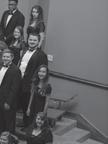
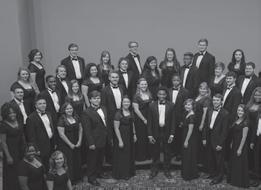


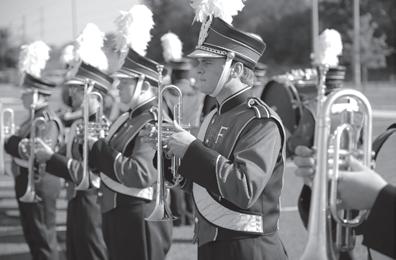
With the end of the school year fast approaching, I hope you all will have time to rest and recharge over the coming weeks. As you are taking time over the summer to begin to construct your literature for the upcoming year, the following pieces offer many teaching opportunities to polish technique, enhance listening skills and excite your audiences. I encourage you all to consider carefully the repertoire that you perform each year. The repertoire that we select becomes our curriculum, which is extremely important to the development of your students as musicians and to the maturation of your ensemble. In addition to familiarizing yourself with the new literature that is available, don’t forget those “hidden gems” that tend to get lost in the library. Here are three pieces that will help you on that journey.
Cimmaron Fanfare, by Robert Sheldon, is an ideal concert opener for your young band. Written at the Grade 1.5 level, it offers many teaching moments that solidify technique, articulation and internal pulse while presenting a beautiful lyrical melody throughout. The low voices provide a driving ostinato while the melodic material is presented in the upper brass and woodwinds. The percussion writing is challenging and accessible for students at this level. Robert Sheldon has provided us yet another wonderful work to provide our students with music they will enjoy while helping our students progress as musicians.
Shanghai, by Oscar Navarro, is not a new composition, as it was written in 2005. It is gaining popularity from the composer’s recent success with Downey Overture Shanghai, subtitled an Asian Overture for Band, is labeled as a Grade 3 from the composer, who also publishes his own music. While from a technical standpoint, the piece could be classified as a Grade 3, the length of the piece makes me place it in the Grade 4
Randall Colemancategory. Shanghai utilizes the pentatonic scale to present the tonality that has long been associated with the rich history of music from Asia. Crisp articulation and repetitive rhythms highlight this piece that would make an excellent addition to your program for your Grade 4 ensemble.
Grace, by Brain Balmages, is a welcome addition to the repertoire at the Grade 4 level. Comprised of almost entirely original material, Grace is a beautiful lyrical work that allows your ensemble a wonderful opportunity to enhance its active listening skills, highlighting the ensemble’s ability to produce warm characteristic tones and to advance the ensembles pitch matching skills. Audiences will notice a single quote of Amazing Grace performed by Alto Saxophone soloist near the end of the piece. While the piece utilizes original material, the single quote of Amazing Grace provides an instant connection with the audience. Grace is a gorgeous lyric work that would make an incredible addition to your concert or contest performances.
Randall Coleman Wind Band Music Reviewer Associate Director of Bands The University of Alabama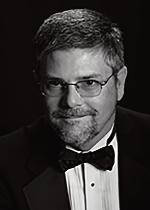
 PatStegall, AMEATreasurer/Registrar
PatStegall, AMEATreasurer/Registrar
It is not too early to be thinking about our AMEA Conference in January, 2018. Just remember, you must join NAfME, and you should pre-register when the pre-registration becomes available. A healthy organization is always concerned with growth and development, and the AMEA board is interested in growing our organization, and for getting all music teachers in Alabama involved in professional development through AMEA and NAfME. You can help increase our membership by communicating the benefits of membership to our colleagues. When you are joining or renewing your membership, think of those music teachers in your area that may not be active members, and send them a message inviting them to join!
Remember to: Remind your colleagues to join, include the new music teachers, invite the inactive music teachers and be involved as a mentor to the young music teachers. Renew your membership now at www.nafme.org . Membership in NAfME is required for participation in state MEA sponsored events like the AMEA Conference, the Elementary Division Fall Conference, All-state and Musical Performance Assessments. Joining NAfME secures your membership in AMEA and in your division.
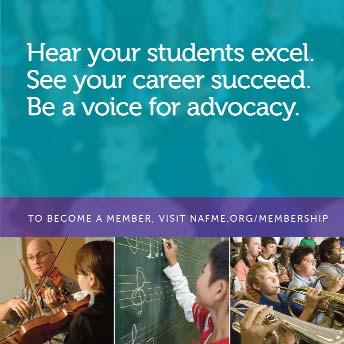
There will come soft rains
Music: Ivo Antognini (b. 1963)
Text: Sara Teasdale (1884-1933)
SSAATTBB, unaccompanied
Publisher: Alliance Music Publications, Inc.
Approximate performance time: 5’25” (approximately)
Sample performance: Atlanta Master Chorale (Dr. Eric Nelson, Conductor); https://www.youtube.com/watch?v=b4xHYtCMbQQ
“There Will Come Soft Rains”is a twelve-line poem by Sara Teasdale (published in 1920) that imagines nature reclaiming its ground after a war. Antognini beautifully sets themes of war, extinction, and rebirth with thick, lush jazz-inspired harmonies and non-vocal effects, such as choral whispering and whistling. In the span of a few measures, Antognini can quickly build from a unison to a full 8-part choral divisi and back again, as he is driven to programmatically set the following text:
There will come soft rains and the smell of the ground, And swallows circling with their shimmering sound; And frogs in the pool singing at night, And wild plum trees in tremulous white; Robins will wear their feathery fire, Whistling their whims on a low-fence wire; And not one will know of the war, not one Will care at last when it is done.
Not one would mind, neither bird nor tree, If mankind perished utterly; And Spring herself when she woke at dawn Would scarcely know that we were gone.
This piece won the 2012 Boston Contemporary Americana Festival and was dedicated to the Santa Fe Desert (Joshua Habermann, Conductor). The Choral Journal (September 2013) review referred to this piece as a “poignant, reflective, and virtuosic piece that stands as a hallmark of Antognini’s output”. I recently contacted Antognini and asked him to share a few thoughts about this piece: “There Will Come Soft Rains is a haunting text, that’s for sure! I read it for the first time many years ago; I was fifteen and was reading Martian Chronicles, in Italian, of course, and this poem appeared at a certain point in the book. Then, a few years ago, I was looking for a new poem to set to music and I found this marvelous one and yes, my mind went back more than thirty years and I remembered…I got in love again with it and I could not resist to do a piece with it! By setting the lyrics to music, I really tried to apply the so-called “word painting” as much as possible. It has been like composing the soundtrack for a poem and among my choral pieces, it is one of my favorites!” (email correspondence, April 11, 2017).
Music: Eric William Barnum (b. 1979)
Text: St. Augustine of Hippo, Confessions, Book X (354-386) SATB divisi, unaccompanied
Publisher: Graphite Publishing (graphitepublishing.com)
Approximate performance time: 5 minutes
“Confessions” was commissioned in 2010 for the Troy University Concert Chorale and premiered in the Spring of 2011. The text is taken from Book X of St. Augustine’s Confessions and begins with an intoned and repeated “You” in the alto voice. Other voice parts immediately explore the tonal landscape around this note and expand the neo-medieval treatment of this evocative text. While searching for a text, I was captivated by one provocative and profound line in the Augustinian tome – “I must pass beyond memory to find Thee”. Barnum expertly explores the ancient and eternal themes in the text through the use of parallelism, chant like rhythmic flow, open harmonies, and the piece ends as it begins –breathing life and mystery into the pronoun “You” with an evocative, aleatory ending. The piece is challenging but would be appropriate for a more advanced high school choir.
You.
I must pass beyond memory to find You.
I shall look for You so that my soul may live. When my soul is bathed in light that is not bound by space, When it listens to the sound that never dies away. When it breathes a fragrance that is not borne away, I will look for You.
But we, O Lord, are your little flock, but we, O Lord, keep us as Your own.
Spread your wings. And let us shelter beneath them. You.
To rejoice in the truth is to rejoice in You. It is not as though I do not suffer wounds, but I feel rather that You heal them over and over. You.
Words and Music: Sara Bareilles (b. 1979)
Arranged by Kerry Marsh
Publisher: kerrymarshvocaljazz.com
Sample performance: http://www.kerrymarshvocaljazz.com/media/scoreflipper/Score Flipper.html?sfParam=kaleidoscopeheartbluebird (can also preview the score here)
SSSAATBaB (Level 3), soprano solo A cappella
“Kaleidoscope Heart” is Sara Bareilles’ title track on her 2010
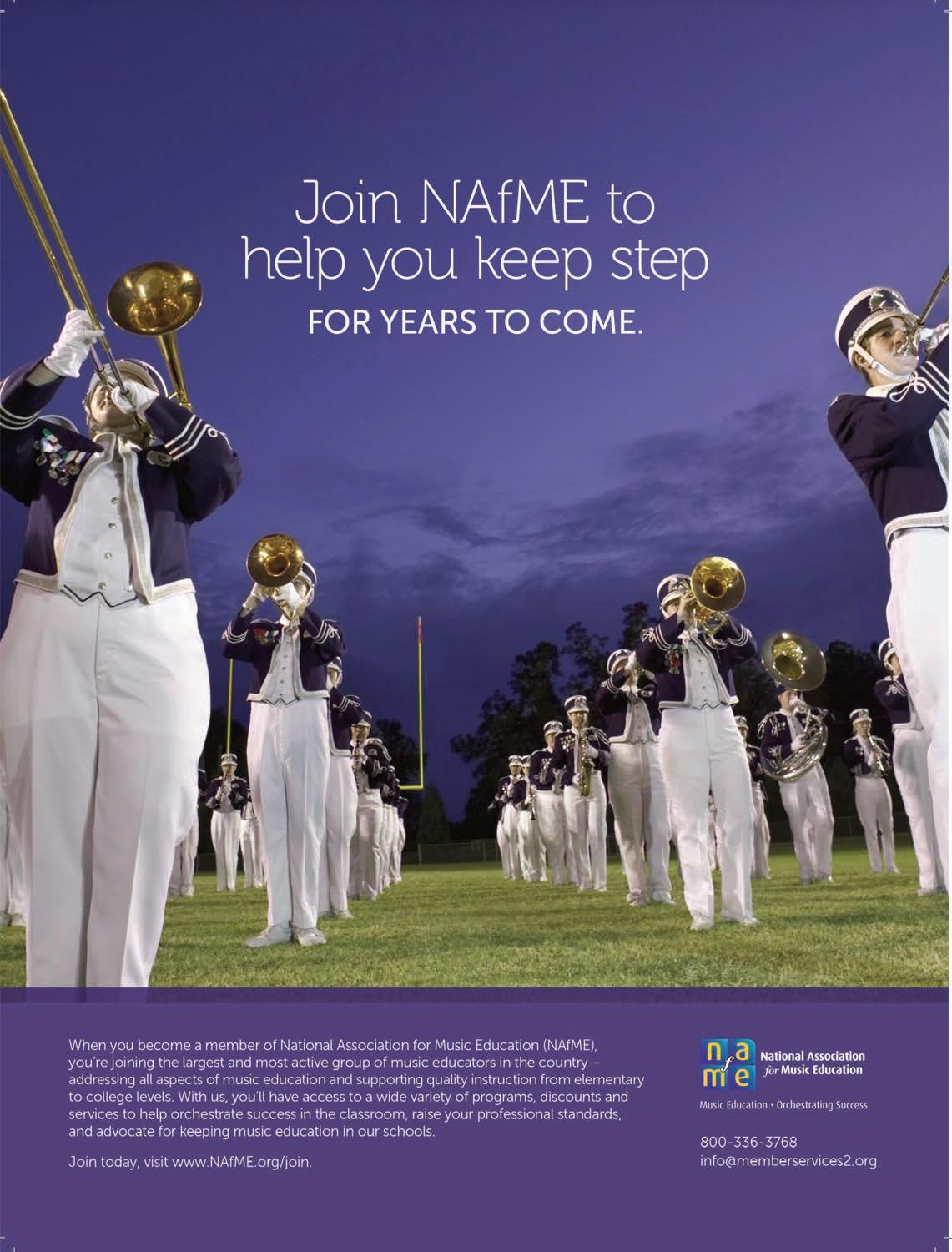





































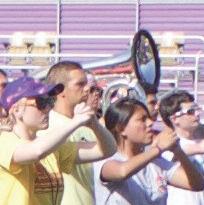

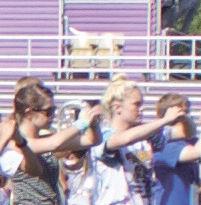



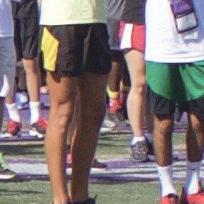






album by the same name and “Bluebird” is the last cut on the same recording. Vocal Jazz arranger, Kerry Marsh, expertly combines the two, with the beautiful jazz waltz (“Bluebird”) featured prominently (and the title track serves as bookends around this tune). The mash-up feels very organic – almost as if the two songs are versions of each other. According to Bareilles, “I picked out the name of the record months before I even finished writing the songs. I love the imagery of those words, and they’re really representative of how I envision my heart. It’s a colorful but fragmented, ever-changing sum of all the bits and pieces that make it up. A kaleidoscope is a tool that helps make sense of the mess. Or at least makes it nice to look at”. Arranger Kerry Marsh expertly sets both pieces with his signature tight (and split) harmonies and engaging rhythms. Don’t have a vocal jazz ensemble? No worries – this piece would work equally well as the middle ballad within a show-choir set or as a contemporary selection for a larger choir.
A personal note about Dr. Lacey Powell: I first arrived on the Alabama music education scene in 1986 as a newly minted PhD (Florida State) and a passion for all things music education. Lacey quickly reached out to me, made me feel needed and cared for and took a genuine interest in my areas of research and teaching—an involvement that he continued right up until his death. I worked closely with Lacey for a yearly event (to honor WWII TROY
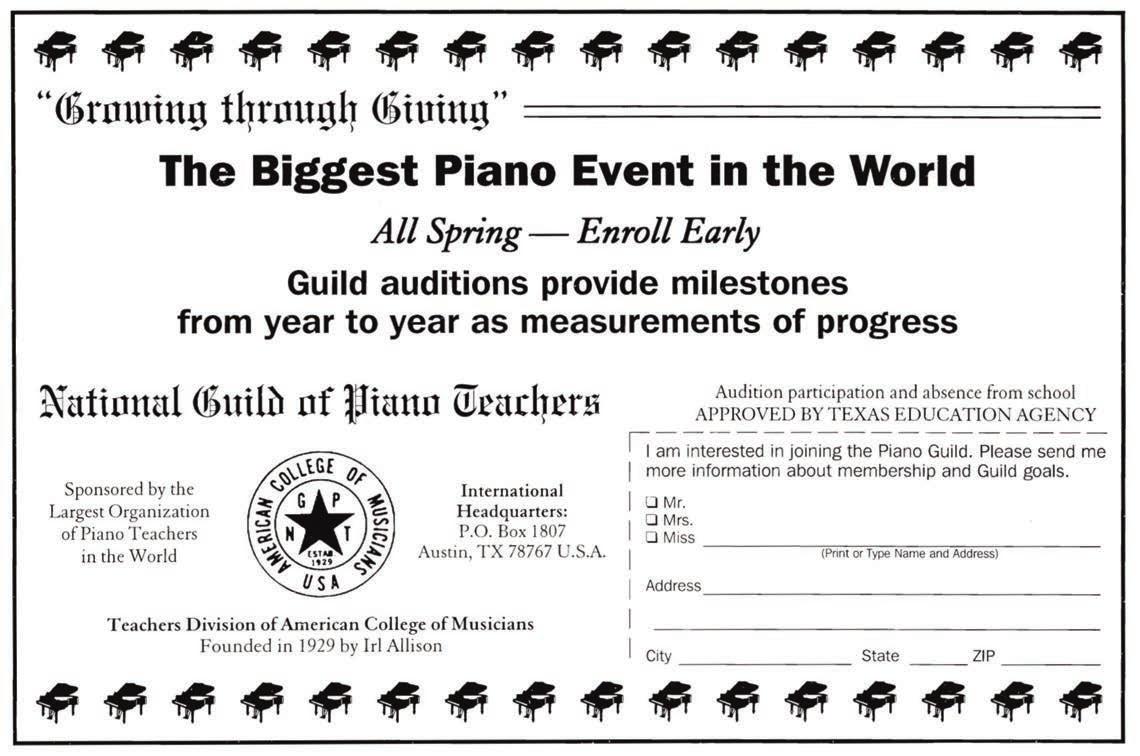
University alumni) and he extended this same care and attention to my singers as well. Receiving the AMEA 2014 Lacey Powell Outstanding Music Educator Award was one of the proudest professional moments of my life—because it bears his name, memory, and legacy. He set the example for us all and I will cherish his memory forever.
Dr. Diane Orlofsky is Professor of Music and Director of Choirs at Troy University, where she oversees the choral program and teaches undergraduate and graduate classes in music education. She is the conductor of the Troy University Concert Chorale and the Director of the Troy University vocal jazz ensemble, frequency.

Reprinted with permission from Missouri School Music
Good teachers continually seek ways to become more pedagogically effective in the classroom. How do we keep our students engaged when there are so many issues to address in so many sections of the ensemble? Multiple aspects contribute to perceived teacher effectiveness, among them planning, motivation, content knowledge, and the feedback we give our students (TschannenMoran, Hoy, & Hoy, 1998).
Researchers have examined the success of teacher feedback by focusing on teacher intensity, which has been defined as sustained control of the student/teacher interaction with efficient, accurate presentation of subject matter combined with enthusiastic affect and effective pacing (Standley & Madsen, 1987). Further investigation by scholars has revealed close correlations between teacher intensity, teacher effectiveness, and teacher pacing (Silveira, 2014). Music education researchers have given particular interest to the relationship between pacing and effective teaching.
As many teachers know, pacing can substantially influence the success of a lesson. If a teacher moves through information too quickly, some students will not fully understand the concepts, possibly resulting in more review time than the teacher anticipated. Alternately, if a teacher moves too slowly through the material, students could potentially lose interest and become off-task. Great teacher pacing is almost always present in our best classrooms, and researchers have investigated the commonalities among successful teachers and the effects of their pacing.

In a musical context, pacing has been defined as changes in focus of activity between teacher and students (Yarbrough, 1975; Yarbrough, Dunn, & Baird, 1996). Instruction and pacing in music performance settings have been identified as different from other academic areas because students often have more frequent performance opportunities to demonstrate identified skills. Scholars have recognized that the frequency of teacher and student activity, rather than the duration of such behaviors, corresponds with positive evaluations of preservice teachers (Duke, Prickett, & Jellison, 1998). Research participants also rated the pace more positively when the average lengths of teacher and student activity were shorter rather than longer. Among piano teachers in a one-on-one instructional setting, individuals that were identified as the most skilled by both expert observer evaluations (Siebenaler, 1997) and student accomplishment (Buckner, 1997) consistently exhibited more rapid alterations between student activity and teacher activity than were demonstrated by less-skilled teachers (Buckner, 1997; Siebenaler, 1997).
Teacher pace can vary according to the error being corrected (Cavitt, 2003). The longest sequence of teacher talk time often happens when ensemble tempo is being corrected and multiple directions are being given, resulting in the pace of rehearsal slowing down. Results of a study of choral rehearsals indicated that those with a slower pace had less-desirable effects, such as lower performance-rating, offtask student behavior, similar teacher facial expressions, incomplete sequences of instruction, less steady teacher speech speed, and similar voice pitch and volume
characteristics (Yarbrough, Dunn, & Baird, 1996). The authors of this study suggested that slower teacher pacing could affect both the behavior of students and teacher disposition in front of the classroom.
There are ways in which teachers can improve their pacing. One of the most effective is to cut down on the amount of time spent talking to the ensemble. A strategy to accomplish this goal is to make a conscience decision to give more concise feedback to the ensemble— even cutting down the feedback to seven words or less (Brinson & Demorest, 2013). Conductors can sometimes give elaborate explanations of the sound they need to hear from the ensemble. Often the best feedback is the simplest feedback, however. Instead of saying “Sopranos, take a look at measure 15. Can I get more volume from you please in that measure? Now what you sang was nice but I think we could possibly be a little louder. Let’s try that again,” simply say “Sopranos, measure 15 needs to be louder.” This is a simple, measurable goal for the section that provides an opportunity for quick feedback from the director in order to hear the necessary change from the musicians. Researchers have noted that choral ensemble members have expressed preference for teachers who talk less when giving feedback (Napoles, 2016). Furthermore, teacher delivery of instruction was identified by Napoles and MacLeod (2013) as being the best predictor of overall perceptions of teacher effectiveness.
Another strategy to reduce teacher talk is to use a clear conducting gesture (Kohut & Grant, 1990). This sounds like a simple

To arrange a visit, email music@uab.edu or call 205 934-7376






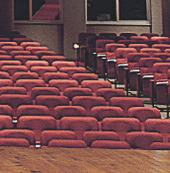

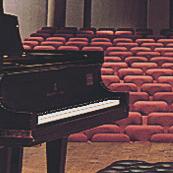












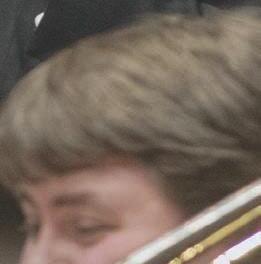







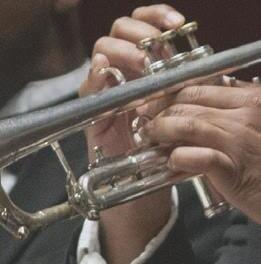

















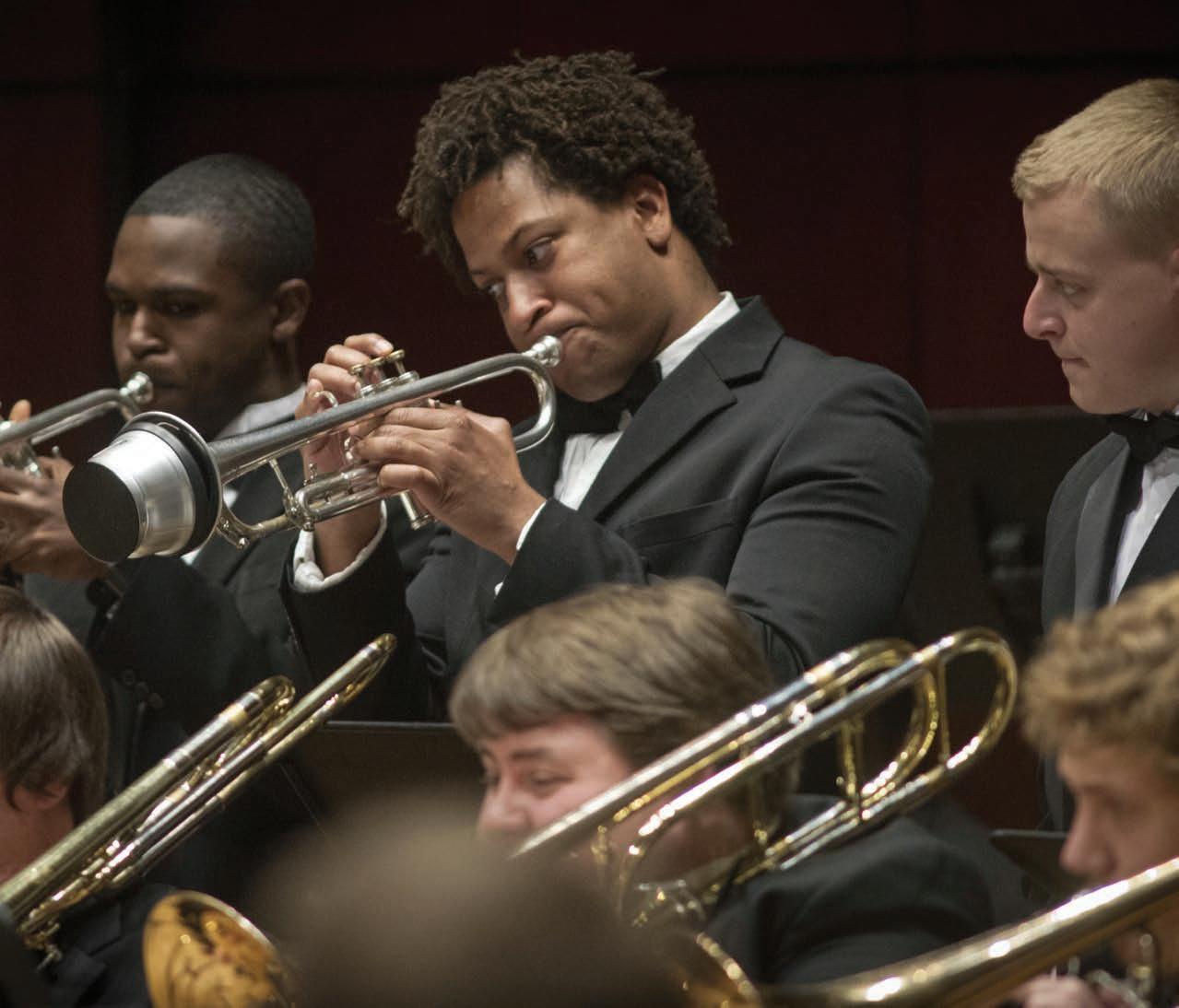
solution, but as conductors, we can fall into a trap of talking instead of showing. Often, the simplest and most musical way of fixing an issue is to show it more clearly through our gesture and facial expression. Think of the number of times you have adjusted volume and style of the music using your words. With some practice, these moments of talk can become moments of showing. Not only will students likely be more sensitive to your conducting, but your ability to show more of the music through conducting could improve, as well.
In order to identify opportunities to cut down on teacher talk, music educators should consider video recording their own instruction. One of the more valuable resources for this purpose is SCRIBE (Duke & Farra, 1996), computerized video playback software. With this tool, educators are able to upload their own teaching video and create variables that they would like to measure. The software is able to track both timed variables and frequency variables. For example, in our rehearsal clinic courses at the University of Missouri–Columbia, students track the amount of time they talk and the amount of time students perform. Students will then compare these two variables and identify areas for improvement. We also have the students compare the number of times they give positive feedback to the number of times they give negative/constructive feedback. The software is able to present timelines, durations, frequencies, and means—all of which help the student improve their pacing. In the beginning, students are almost always surprised at how much time they talk during a rehearsal. We work with them on giving concise spoken and gestural feedback in order to provide the performers with more opportunities to play the identified section accurately.
The goal of talk time during rehearsal should be between 35%–45%. Outstanding choral directors have been identified as talking for 35% (Caldwell, 1980) and 40% (Caldwell, 1980) of their total class time. Highly effective band directors have been measured talking for 42% (Pontious, 1982) and 44% (Sherill, 1986) of their rehearsal time. Our students start around 65% talking time in their rehearsals and can often get that down to approximately 50% during the semester. Students begin to understand the relationship between their talking and the frequency with which they get to listen to the performers improve their
playing. By the end of the semester, many students demonstrate much improved pacing.
As we seek to improve your instructional pacing, we must remember that the frequency of teacher talk to student performance is what is important, and not the total amount of time students perform. Directors need to give students numerous opportunities to make a change in their sound. Once the sound is achieved the first time, repetition of the sound becomes important to ensure that a change has been made. By reducing the amount of time we talk to the ensemble, either through the conciseness of our feedback or through gesture, our students receive higher rates of teacher feedback and performance opportunities. Effective pacing can result in more engaged students during rehearsals and higher teacher effectiveness.
References:
Buckner, J. L. J. (1997). Assessment of teacher and student behavior in relation to accomplishment of performance goals in piano lessons. (Doctoral dissertation). Retrieved from ProQuest Dissertations and Theses database. (Order No. 9803080)
Brinson, B., & Demorest, S. (2013). Choral music: Methods and materials. Boston, MA: Schirmer.
Caldwell, W. M. (1980). A time analysis of selected musical elements and leadership behaviors of successful high school choral conductors (Doctoral dissertation). Retrieved from ProQuest Dissertation and Theses database. (Order No. 8020349)
Cavitt, M. E. (2003). A descriptive analysis of error correction in instrumental music rehearsals. Journal of Research in Music Education, 51, 218–230. doi:10.2307/3345375
Duke, R. A., Prickett, C. A., & Jellison, J. A. (1998). Empirical description of the pace of music instruction. Journal of Research in Music Education, 46, 265–280. doi:10.2307/3345628
Duke, R. A., & Farra, Y. (1996). SCRIBE: Simple Computer Recording Interface for Behavioral Evaluation. Austin, TX: Learning and Behavior Resources.
Kohut, D. L., & Grant, J. M. (1990). Learning to conduct and rehearse. New York, NY: Prentice Hall.
Napoles, J. (2016) Teacher talk and perceived teacher effectiveness: An exploratory study. Update: Applications of Research in Music Education, Advance online publication. doi:10.1177/8755123315626228
Napoles, J. & MacLeod, R. B. (2013). The influences of teacher delivery and student progress on preservice teachers’ perceptions of teaching effectiveness. Journal of Research in Music Education, 61, 249–261. doi:10.1177/8755123315626228
Pontious, M. F. (1982). A profile of rehearsal techniques and interaction of selected band conductors. (Doctoral dissertation) Retrieved from ProQuest Dissertation and Theses database. (Order No. 8302966)
Sherill, M. H. (1986). An analytical study of videotaped rehearsal and conducting techniques of selected junior and senior high school band conductors. Retrieved from ProQuest Dissertation and Theses database. (Order No. 8614150)
Siebenaler, D. J. (1997). Analysis of teacherstudent interactions in the piano lessons of adults and children. Journal of Research in Music Education, 45, 6–20, doi:10.2307/3345462
Silveira, J. M. (2014). The perception of pacing in a music appreciation class and its relationship to teacher effectiveness and teacher intensity. Journal of Research in Music Education, 62, 302 318. doi:10.1177/0022429414542978
Standley, J. M., & Madsen, C. K. (1987, Summer). Intensity as an attribute of effective therapist/ client interaction. Quodlibet, 15–20.
Tschannen-Moran, M., Hoy, A. W., & Hoy, W. K. (1998). Teacher efficacy: Its meaning and measure. Review of Educational Research, 68, 202–248. doi:10.3102/00346543068002202
Yarbrough, C. (1975). Effect of magnitude of conductor behavior on students in selected mixed choruses. Journal of Research in Music Education, 23, 134–146. doi:10.2307/3345286
Yarbrough, C., Dunn, D. E., & Baird, S. L. (1996). A longitudinal study of teaching in a choral rehearsal. Southeastern Journal of Music Education, 8, 7–31.
Fall Workshop Board Meeting
Thursday, September 8th
Fall Workshop Friday, September 9th
ASSC Auditions
All-State Auditions
Friday, September 30th-Saturday, October 1st
Wednesday, November 2nd-Thursday, November 10th
Wednesday, November 2nd
Thursday, November 3rd-Friday, November 4th
Saturday, November 5th
Sunday, November 6th
Monday, November 7th- Tuesday, November 8th
Wednesday, November 9th-Thursday, November 10th
AMEA Board Meeting Wednesday, January 18th
AMEA
OCS/OA/ME
District I
District II
District III
District IV
District V
District VI
District VII
Thursday, January 19th-Saturday, January 21st
Thursday, November 17th
Monday, December 5th
Tuesday, November 29th
Tuesday, November 15th
Thursday, November 17th
Wednesday, October 26th
Tuesday, November 15th
First United Methodist Church, Montgomery
First United Methodist Church, Montgomery
Gardendale Mt. Vernon Methodist, Gardendale
Various. See below.
Mobile
Montgomery
Gadsden
Florence
Cullman
Tuscaloosa
Renaissance Hotel, Montgomery
Renaissance Hotel, Montgomery
Decatur High School, Decatur
Calera Middle School, Montevallo
Cahaba Heights United Methodist Church, Birmingham
Alexandria high School, Alexandria
Bob Jones High School, Huntsville
Tallassee High School, Tallassee
University of Mobile, Mobile
SCPA
District I
District I
District II
District III
District IV
District V
District VI
District VII
Solo & Ensemble
District I
District II
District
District
District
District
Tuesday, March 21st
Wednesday, March 22nd
Thursday, March 23rd-Friday, March 24th
Monday, March 20th-Wednesday, March 22nd
Friday, April 7th
Monday, April 3rd-Tuesday, April 4th
Thursday, March 16th
Thursday, March 16th
Thursday, April 6th
First Baptist Church, Decatur
University of North Alabama, Florence
University of Alabama, Tuscaloosa
Gardendale Mt. Vernon Methodist, Gardendale
Gadsden City High School, Gadsden
Columbia High School, Huntsville
First Baptist Church, Tallassee
Springhill Baptist Church, Mobile
University of North Alabama, Florence
Thursday, March 23rd-Friday, March 24th University of Alabama, Tuscaloosa
February 24th Cahaba Heights United Methodist Church, Birmingham
February 23rd
State University, Jacksonville
In December of 2015, with bi-partisan support, President Obama signed into law the Every Student Succeeds Act (ESSA) thereby reauthorizing the Elementary and Secondary Education Act (ESEA) first signed into law in 1965 by President Johnson. Within the current law, there are a number of “Titles” which deal with various facets of the Act—many of which have been established along the way in subsequent reauthorizations after the initial signing of ESEA. The most well-known of these Titles is “Title I” as it makes up most the total funds allocated Prior to the signing of ESSA, the last reauthorization of ESEA was the No Child Left Behind Act (NCLB) which was signed into law in 2001 by President George W. Bush.
What are the major changes from No Child Left Behind (NCLB) to the Every Student Succeeds Act (ESSA) and why is this important for Music and Arts Education?
One of the biggest changes is that decisionmaking and accountability measures will no longer be dictated from the federal level— they will now originate from each individual state. State education agencies (SEAs) are currently in varying stages of developing and/or revising their State Plans to meet the provisions within ESSA and are expected to submit them to the U.S. Department of Education.
Also, ESSA places a focus on the providing of a “Well-Rounded Education” for all students. ESSA defines a “Well-Rounded Education” as follows.
The term “well-rounded education” means courses, activities, and programming in subjects such as English, reading or language arts, writing, science, technology, engineering, mathematics, foreign languages, civicsand government, economics, arts, history, geography, computer science, music, career and technical education, health, physical education, and any other subject, as determined by the State or local educational agency, with the purpose of providing all students access to an enriched curriculum and educational experience.
Speaking to the Las Vegas Academy of the Arts on April 14, 2016, former Secretary of Education John King declared that while literacy and math skills are “necessary for success in college and in life…they’re not by themselves sufficient. A more well-rounded education is critical for a safe, supportive and enjoyable learning environment.” (The Huffington Post, “Education Secretary John King: It’s Time To Stop Ignoring The Arts And Sciences.” http://www.huffingtonpost. com/entry/john-king-well-rounded-education _us_570e9013e4b03d8b7b9f34c6)
Why is all of this important for Music and Arts Education?
ESSA has provided a major opportunity for each state to determine to what degree Music and Arts Education are incorporated into federal funding plans at the state and local level.The stage has been set: 1) Decision-making is occurring at the state level rather than from the federal level, 2) State Plans are currently under construction thus providing opportunities to have input via state arts organizations, coalitions, and interested like-minded supporters, and 3) A
focus has been placed on providing a wellrounded education which, among others subjects, includes music and the artsso that all students may have “access to an enriched curriculum and educational experience.” What does this mean for Music and Arts Education and implementation of Title I?
Title I is the largest source of federal funding for education. The U.S. Department of Education website describes it as a program which “provides financial assistance to local educational agencies (LEAs) and schools with high numbers or high percentages of children from lowincome families to help ensure that all children meet challenging state academic standards.”
Arizona has had more than a decade of allowing arts integration to be supported by Title I funds, first through Title I Part F funding (Comprehensive School Reform under No Child Left Behind) and through Title I Stimulus funds. An Arizona website for arts and Title I was created at title1arts.org in part to create a centralized portal to showcase this work and to encourage Arizona districts to undertake more Title I funded arts integration within the state. The title1arts.org site provides a direct link to the “Arizona site” which also clearly states that, “Arts programs can help schools achieve the goals of Title I by facilitating student engagement and learning, strengthening parent involvement, and improving school climate and school wide behavior.” This site even quotes Superintendent of Public Instruction Diane Douglas in her support for arts education for Arizona’s children in her remarks that, “as an artist myself, I know how important the arts are for learning. I support the arts as part of a complete education for
Arizona’s children.”
As Title I can address all areas of a wellrounded education, Title I funds may open up at your school/within your district to supplement support of music education. To learn more, visit the “Everything ESSA” page at http://bit.ly/NLCBends.
How does all of this impact my program?
Districts will need to create their own ESSA plans for Titles I, II and IV – where music education can benefit. In fact, many districts, in anticipation of impending State Plans, have already begun this process since ESSA is to be implemented in the upcoming school year (2017-18). Keeping in mind Tip O’Neill’s famous quote that “all politics is local,” this is the perfect time to step up and become part of the process at your district and/or school level through coordinated action to ensure that music and arts education are included in the local plan.
For example, some State Departments of Education want to provide more comprehensive in-depth accountability
information to the general public beyond test scores. They may also articulate that the LEAs be required to substantiate how they are providing a well-rounded education for all students. This would indicate that there will be some measure for collecting this information from the local school district. Will music and arts education be included in the local plan as part of the definition of a well-rounded education? How can the music and arts community ensure that EVERY STUDENT will indeed be provided with access? Now more than ever, it is vital that music and arts educators work collaboratively with their associations, fellow music and arts educators, music dealers and community arts organizations to ensure that districts, and even individual schools, ENSURE that the local plan addresses music and arts education in a manner that specifies, at a minimum, what is articulated in the State Plan.
In particular, music educators will want to get involved with the creation of the Title IV plan, the section of the law bringing new funding specifically for a Well-Rounded Education. You can create your own music
education needs assessment for your district using NAfME’s 2015 Opportunity-to-Learn Standards; checklist versions of these standards are now available for your use at www.nafme.org/standards.
You can also work, if you are at a Title I Schoolwide school, at making certain that music education is included in your school’s Title I Plan. ESSA encourages schools to address a well-rounded education in their Title I schoolwide plans, so now is a great time to get music included for the 2017-18 school year. To find out if you are at a Title I Schoolwide school, check with your principal and while you’re in the office, volunteer to help with the creation of next year’s plan.
This may also be a good time to dig into your music education program’s impact data and be sure that summary information on student participation and learning outcomes are widely available via your school/district website to the entire community. How does music education participation relate to student attendance, participation in advanced coursework (AP), graduation rates,

student engagement, and positive school climate including behavior? The Metropolitan Nashville Public Schools published the Prelude Report: Music Makes Us Baseline Research Report which provides exactly this type of information on a district wide level. It may be worth reviewing their findings which are available at: http://bit.ly/2BaselineResearch. In addition, you want to get a sense of the percentage of students who are actively engaged in music and arts education at your school and begin thinking about how that percentage might be increased to address the needs of students not currently served.
Finally, visit the website of your state Department of Education and search for ESSA Consolidated State Plan. Read through it in detail to see if music and arts education have been included. If not, consider engaging your state music education advocacy group or music education association to participate in efforts to include music and the arts in the Plan. NAfME has provided a formatted sample of how music and arts education can be included in the Consolidated State Plan. That document, along with many others, is available on the NAfME website at http://www.nafme.org/advocacy/essa
How to become part of the process— the four R’s:
1. REACH OUT and get involved in your state and/or local music and arts coalition or advocacy group. Offer your commitment and service. The NAMM Foundation provides a variety of advocacy resources online at nammfoundation.org.
2. REINFORCE that music is designated as part of a well-rounded education, not only within ESSA, but also within your State Plan
3. REMIND state, district and community leaders as well as other music and arts education stakeholders (parents, administrators, colleagues, community businesses) about the benefits of music and arts education and what it means for students and communities. Provide supportive data.
4. REQUEST that music education be included in your district’s Well-Rounded Education needs assessment and possible funding under Title IV. Also, be sure to request that a well-rounded education be
addressed, including music, as part of your district’s Title I plan.
There are numerous resources available to assist arts educators in learning more about ESSA and its impact for music and arts education. It is highly recommended that music and arts educators review these online resources and download them to share with colleagues (department meetings, emails to colleagues), parents (parent nights, PTA meetings, booster meetings) and administrators (planning meetings with supervisors). Some of the most helpful resources include:
1. NAfME: Everything ESSA site which may be accessed at: http://4wrd.it/EVERYTHINGESSA
2. Yamaha: The Music Teacher’s Guide to ESSA, which may be accessed at: http://4wrd.it/YAMAHASUPPORTED
3. The NAMM Foundation’s recently released brochure, Music is a Part of a WellRounded Education: What parents need to know about music education and the Every Student Succeeds Act (ESSA) Federal Education Law Complimentary copies (packets of 50 each to share with parents) are available to order at:
http://4wrd.it/ESSAPARENTBROCHU RE
4. SBO: How to Use Advocacy Stats to your Best Advantage: Using Music Education Data as Indicators of a Positive School Climate by Marcia Neel at:
http://4wrd.it/SBO_Marcia
5. SBO: In the Trenches: The Every Student Succeeds Act and What’s in it for You! (But Only if You Act!) by Bob Morrison at: http://4wrd.it/ESSAINTHETRENCHES
6. Meet Title I Goals Using the Arts at: http://4wrd.it/2TITLEIARTS
7. Using Title I funds to support music and arts education in Arizona at: http://www.arizonatitle1arts.org
NOW IS THE TIME to become engaged and to engage others. With the passage of ESSA and the eventual passage of your State Plan, music and arts educators and
advocates have been provided with an opportunity to speak up about the value of music and arts education. The more that we can advocate for music and the arts as part of a well-rounded education within our own districts and schools, as well as providing documented support for how Title I funds can be used for music and arts education, the better the chance that more students will have increased access to the many benefits that an education in music and the arts will provide.
The author, Marcia Neel is the Senior Director of Education for the Band and Orchestral division of Yamaha Corporation of America. She also serves as the Education Advisor to the Music Achievement Council, is also President of Music Education Consultants, Inc. and was the former Coordinator of Secondary Fine Arts for the Clark County School District headquartered in Las Vegas, Nevada.

ACKNOWLEDGEMENTS:
The author would like to thank Mary Luehrsen, Executive Director of the NAMM Foundation, and Lynn Tuttle, Director of Content and Policy for the National Association for Music Education, for their extensive and comprehensive contributions in the preparation of this article. Luehrsen is NAMM’s chief strategist for education policy and music education advocacy. Tuttle currently serves as the AMEA Advocacy Chair and was the Director of Arts Education at the Arizona Department of Education from 2003-2015.







































The University of South Alabama Department of Music, through its innovative curriculum, empowers professional musicians, music educators, and those who wish to enrich their lives through the arts. The Department serves the needs of the University to promote general education and to provide a vital cultural link to the great state of Alabama and to the Gulf Coast region. Its excellent facilities and faculty, promotion of technology, and dedication to life-long learning provide a wide spectrum of experiences for both the student and the community.
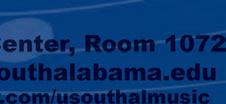

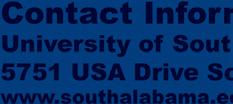
INSTRUMENTAL ENSEMBLES
Wind Ensemble


Symphony Band
Symphony Orchestra
String Ensemble
Jaguar Marching Band
Jaguar Pep Band
Jazz Ensemble







BM with Concentration in Music Education (Instrumental or Vocal)



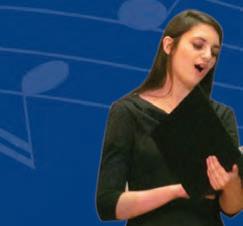

BM with Concentration in Performance (Instrumental or Vocal)

VOCAL ENSEMBLES


University Chorale

USA Opera Theatre
USA Concert Choir
CHAMBER ENSEMBLES



Flute Choir
Trumpet Ensemble
Trombone Ensemble
Tuba Euphonium Ensemble


Chamber Brass Ensembles
Chamber Woodwind Ensembles

Percussion Ensemble

USA Steel Band

USA World Music Ensemble
Piano Ensemble
Guitar Ensemble
BM with Concentration in Elective Studies (Business or Specific Outside Fields)
MM with Concentration in Music Education (Instrumental or Vocal)

MM with Concentration in Music Performance (Piano and Vocal)
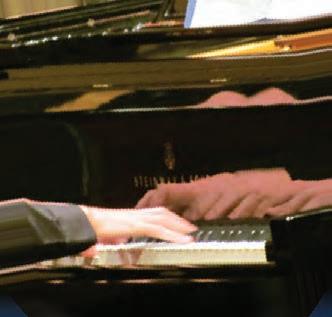
MM with Concentration in Collaborative Keyboard
Contact Information





